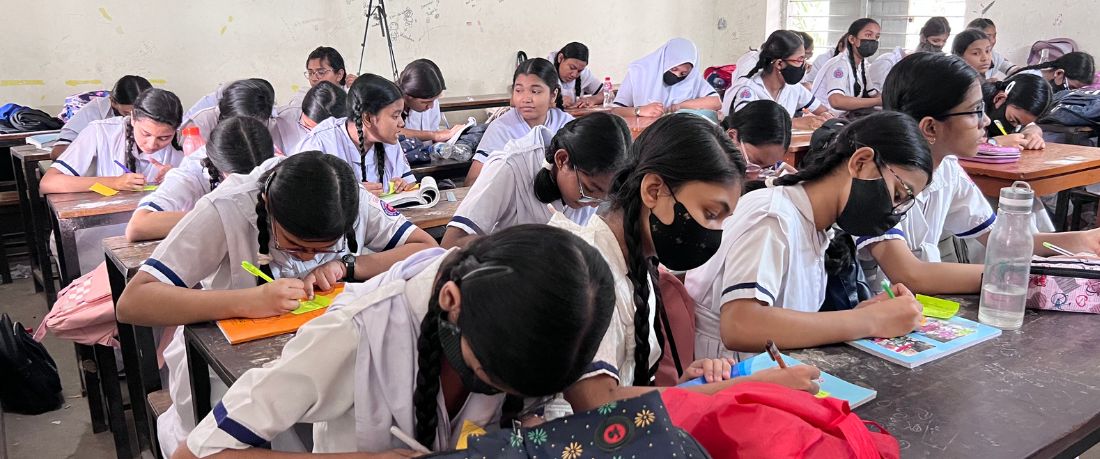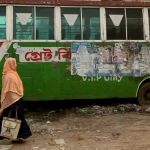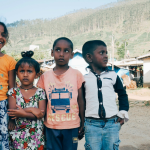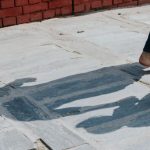In February 2023, law students in Dhaka commenced a Street Law campaign arranged by iProbono Bangladesh. This year’s topic, Mental Health, aimed to mainstream mental health as a human right among school children.
Bangladesh has an enormous burden of mental health problems and significantly disproportionate mental health facilities. One study found signs of mental disorders and depression syndromes are prevalent among 6.5-31.0% of the adult population and 13.4-22.9% of children. However, only 10% of those individuals receive treatment. Yet, mental disorders have been considered a matter of stigma and are surrounded by a plethora of myths and superstitions in our society. This has led to neglect, social isolation and violence towards mental health patients. The UN Human Rights Commission confirms that mental health is a part of the right to health. Bangladesh enacted Mental Health Act, 2018, to formalise the approach to protect, promote and preserve mental health rights. The campaign included both mental health experts and legal experts to address the problem from both clinical and legal points of view.
Till now, the Street Lawyers have been able to reach more than 350 students from Grades 7-10 in three different schools. In addition to increasing awareness among schoolchildren, the program aids law students in developing their public speaking abilities and achieving a better understanding of how the law is applied in daily life.
Empowerment Through Law of the Common People (ELCOP) provided logistical and venue support to the program this year.
What is Street Law?
Street Law is an interactive method of designing legal literacy for young people and grassroots populations. It attempts to inform people about the importance and relevance of law in daily life and give them the tools they need to use it effectively.
The main strength of Street Law lies in its use of simple language and interactive methods; roleplay, games, brainstorming, debates, etc, are used to guarantee participation from the audience. Street Law was first introduced in Bangladesh in the 1990s but is yet to be effectively institutionalised through law schools.
This is iProbono’s third Street Law initiative in Bangladesh. Street Law does not only develop law students’ knowledge and skills but also helps them understand the importance of pro bono work. In 2019, iProbono arranged Street Law sessions on child rights with children working in automobile garages; in 2021, it ran a virtual Street Law campaign on medical negligence.
How Were the Street Lawyers Trained?
In the first phase of the program, 18 law students were chosen from a pool of 130 applicants to participate in the Training of Trainers (ToT) conducted by iProbono. The Street Lawyers are all undergraduate law students studying in various law schools in Bangladesh.
The ToT started in November 2022, where the Street Lawyers were oriented with both theoretical and pedagogical knowledge. The theoretical orientation included the concept of human rights, health rights, mental health and related matters, and mental health law in Bangladesh, while the pedagogical training focused on designing lessons, creating teaching methods such as games and brainstorming cues, and how to manage a Street Law classroom. Each of these sessions was conducted by subject matter experts, including Professor Dr Mizanur Rahman, Director, Bangladesh Institute of Law and International Affairs (BILIA) and Ex-Chairman, National Human Rights Commission; Dr Kamal Uddin Ahmed, Professor of Clinical Psychology, University of Dhaka; Mr Mahdy Hassan, National Programme Coordinator, GLO.ACT, United Nations Office on Drugs and Crime (UNODC); Ms Alida Binte Saqi, Project Coordinator, UNODC; Ms Nadia Rahaman, Senior Lecturer, East West University; and Monira Rahman, Executive Director, Innovation for Wellbeing Foundation.
The Street Lawyers then went through multiple practice sessions in the second phase of the training to sharpen their facilitation skills under the mentorship of Arpeeta Shams Mizan, Senior Legal Officer, iProbono, Bangladesh and Sayeed Hossain Sarwar, Consultant, iProbono, Bangladesh. These demo sessions were often evaluated by senior legal professionals who were Street Lawyers as young law students, such as ASM Sayem Ali Pathan, Advocate, Supreme Court of Bangladesh, and Emraan Azad, Assistant Professor, Bangladesh University of Professionals. Through a month-long trial and error process, and on the basis of feedback, the Street Lawyers prepared the lesson plans.
Three lesson plans, meant to be implemented on consecutive days, were prepared to cover different thematic areas. The first plan covers the definition of mental health and its significance in regular life. Its aim is to sensitise the participants about the issues and break the taboos and myths related to mental health. The second lesson plan situates mental health rights as an inextricable element of health rights. The third lesson plan sheds light on the status of mental health rights in Bangladesh with a focus on the newly enacted Mental Health Act, 2018. The participants were provided with the contacts of institutions providing mental health support.

Training sessions of Street Lawyers conducted by Dr Mizanur Rahman and Arpeeta Shams Mizan.
Street Law in Schools: How the Program Was Implemented
In schools, the Street Lawyers tried to break down the social stigma around mental health, explained what human rights are, who ensures them both nationally and internationally, as well as legislations that deal with mental health rights in Bangladesh and globally.
Ten Street Lawyers – Tasnim Tarannum Progga (Dhaka University), Nowshin Mustafa (East West University), Tasmim Jahan Neeha (Dhaka University), Tanha Rahbar (University of London), Saima Karim Shannon (Jagannath University), Rezwana Rashid (Dhaka University), Reazul Hassan (University of Asia Pacific), Kaushik Dutta (East West University), Farhana Haque Flora (BRAC University), and Nusrat Jahan Meem (Jahangirnagar University) conducted this year’s campaign. The implementation of the program was supervised by Sayeed Hossain Sarwar, Jubdatul Jabed, Program Manager, iProbono Bangladesh and Ahona Aroni Hassan, Program Officer, iProbono Bangladesh.
The Street Lawyers and the iProbono Bangladesh team preliminarily selected six to eight schools in Dhaka with students from diverse economic classes. While making the list of schools, prior connections and accessibility of the Street Lawyers were taken into consideration. The schools were approached by the Street Lawyers with formal letters of invitation, and sessions were secured upon acceptance from the authorities. Street Lawyers also contacted Pather School, an organisation working with street children, to organise Street Law sessions.
Even though the Street Lawyers were well prepared, implementing the sessions in a classroom for the first time was challenging. However, they were quickly able to work through the initial jitters and interact well with the students.
The first school the Street Lawyers went to was Tejgaon Government Girls’ High School in Dhaka. Two hundred students from Grade 8 attended the sessions. Despite some students’ initial reluctance, they soon realised that the Street Lawyers were not there for mundane lectures but to give them crucial information on mental health and rights – a subject they were keen to discuss and learn about. The Street Lawyers were able to establish a strong rapport with the students. After the sessions were over, several students expressed their appreciation to the Street Lawyers.

Kaushik Datta, Tasnim Tarannum Progga, Tasnim Jahan Neeha, Saima Karim Shannon, Reazul Hassan, Nowshin Mustafa and Tanha Rahbar with the Principal of Tejgaon Government Girls’ High School.
In Nilkhet High School, the second venue, the implementation was trickier as students from different classes were merged into one group. Around 70 of them attended the sessions.
At the third school, Dhaka Residential Model College, around 90 students from Grade 7 attended the sessions. The discussion was interactive, and the students asked several questions on mental health and human rights.

Students’ responses to what they already know about human rights and what they want to learn.
Fourthly, the Street Lawyers conducted sessions in the makeshift school by Pather School for the street children in Dhaka Stadium, Gulistan. Around 30 children from various age groups participated in the training. Four sessions were conducted in two days, with lesson plans modified specially for street children.
A Play and Game: Three Days of Interactive Learning
The Street Lawyers performed a play to portray how mental health issues can manifest in a student’s life. Performed on the first day of the campaign, it addressed common myths about mental health issues and became a favourite among the students. Students also learnt about the treatment options for mental health problems, including therapy and medication.
In the second session, a game where aliens invade Earth and try to take away humans’ rights turned out to be the crowd’s favourite. In this game, students are provided with a list of ten rights from the Universal Declaration of Human Rights. The students are then asked to give away eight of these rights to the aliens and explain how they chose the two they want to keep. Through this, the students were quickly able to realise how human rights are interlinked and that one cannot be exercised properly without the existence of the other.
On the final day, students were taught about the different laws that guarantee and protect mental health care and accessibility in Bangladesh. Several students showed keen interest in learning more about these aspects.

Students learn about counselling and play the alien invasion game.
Some of the Challenges We Faced
A challenge the Street Lawyers faced was fitting their 50-minute lesson plan within the allocated 35 minutes. They were able to decide which details were essential quickly and which activities the pupils would find most enjoyable. Nonetheless, some of the activities originally planned had to be eliminated. The Street Lawyers found it tricky to keep track of time and move seamlessly from one activity to the next. When developing future lesson plans, this can be mitigated by ensuring they are not longer than 30 minutes.
There were 50-100 students in one classroom in every single school; therefore, crowd control proved to be a challenging task. It was important that the Street Lawyers were able to discipline the students without dampening their enthusiasm to interact with the material. In the future, dividing the classes into smaller groups may be more effective.
What the Students Said About the Program
“From this campaign, I have learnt a lot about human rights and mental health. I have learned more than what I had expected,” stated a student from Tejgaon Girls’ High School.
Despite the challenges, the campaign received a positive reaction from the majority of the students. Many students stated that they found it to be beneficial and would like such sessions to be held more often.
They expressed a willingness to continue learning more. Many suggested that more digital technology be incorporated to make the sessions more effective. They also showed an interest in learning about topics such as gender equality, religious rights, and life skills.

An illustration of the Street Lawyers by one of the participants.







